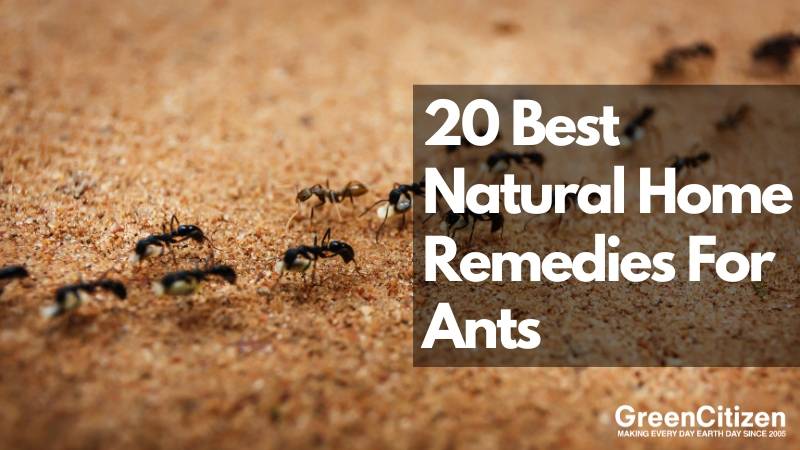Finding ants marching across your kitchen counter can be incredibly frustrating, right? These tiny invaders often show up uninvited, drawn by the scent of food and the promise of shelter. And while it’s tempting to grab the nearest chemical spray, there are natural, safer ways to deal with them.
By using home remedies, not only can you repel and eliminate ants, but you can also avoid harsh chemicals that might harm your family and pets. Plus, going natural is better for the environment. Let’s explore some effective, chemical-free solutions to keep those pesky ants at bay!
Best Natural Home Remedies for Ants
Tea Tree Oil

Ever tried using tea tree oil for ants? Its strong, medicinal scent acts like a natural “Keep Out” sign for these pests.
To make your own ant-repellent spray, mix 10 drops of tea tree oil with 2 cups of water in a spray bottle. Shake it up and spray around baseboards, windows, and other entry points. Just be mindful of where you spray—pets, especially cats, aren’t fans of tea tree oil either.
I once used it near my dog’s bed, and let’s just say he wasn’t thrilled! Keep the mixture out of reach of kids too. It’s a powerful, natural way to keep ants at bay without harsh chemicals.
Ground Cinnamon
Got ants? Try ground cinnamon! This common kitchen spice isn’t just for baking; it doubles as a natural ant repellent. The strong scent confuses ants, making them lose track of their pheromone trails.
Sprinkle cinnamon near entry points like doors and windows to keep ants from coming inside. You can also scatter it directly on ant trails to disrupt their scent pathways.
Just remember, cinnamon isn’t a one-time fix. It needs to be reapplied regularly, especially after cleaning or if it gets swept away. I learned this the hard way after an overzealous vacuuming session! But with a little persistence, cinnamon can help keep your home ant-free.
Borax
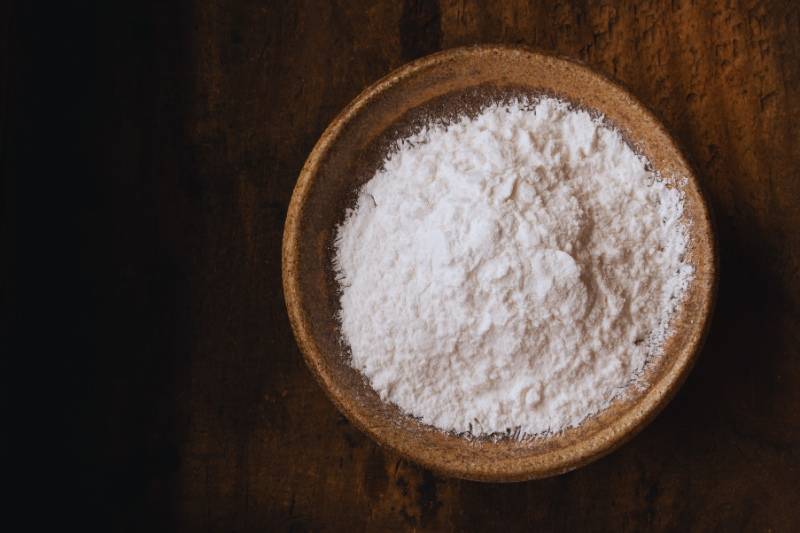
Borax is an effective natural remedy for ants because it disrupts their digestive systems when ingested, eventually killing them. To make a borax bait, mix one tablespoon of borax with a quarter cup of sugar or honey. The sweetness lures the ants, and when they carry the bait back to their colony, it spreads the borax’s effects.
Place this mixture where you see ants most often. However, remember that borax can be harmful to pets and children. Always ensure that the bait is out of reach to keep everyone safe while you effectively manage your ant problem.
Liquid Detergent and Glass Cleaner
Combining liquid detergent and glass cleaning spray is a simple yet effective way to remove ant pheromone trails. Ants use these trails to find their way back to food sources, so erasing them helps keep ants from reentering your home.
To make this solution, mix equal parts of liquid detergent and glass cleaner in a spray bottle. Shake well. Spray the mixture directly onto areas where ants are commonly seen, such as countertops, baseboards, and window sills.
Wipe the surface with a cloth, leaving a light residue that deters ants. Regularly applying this mixture can help maintain an ant-free environment without the need for harsh chemicals.
Peppermint
Peppermint oil is a powerful natural ant deterrent. Its strong aroma confuses ants and keeps them from entering your home. To use peppermint oil, mix 10 drops with two cups of water in a spray bottle. Shake well and spray around entry points like doors and windows or anywhere you see ants.
Alternatively, soak cotton balls in peppermint oil and place them in ant-prone areas. However, remember that peppermint oil can be toxic to pets, especially cats. Keep the cotton balls and spray away from areas accessible to your pets.
Diatomaceous Earth
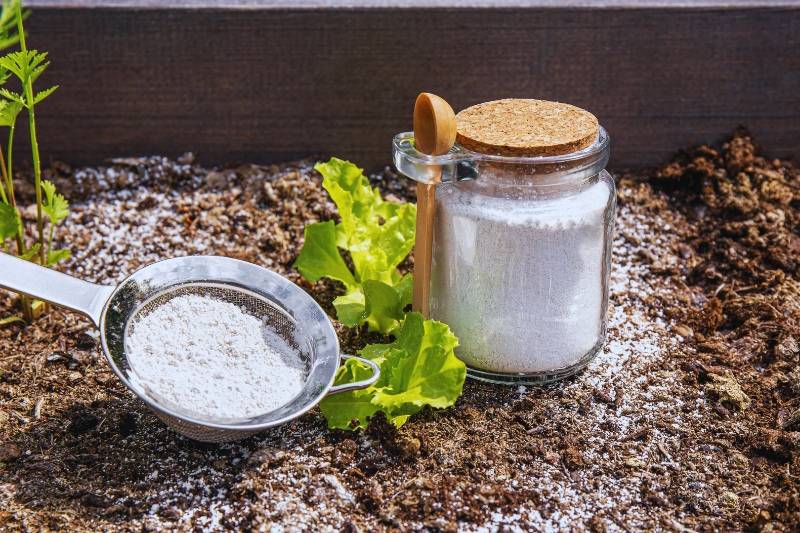
Diatomaceous earth is a highly effective natural insecticide that works by dehydrating ants. When ants come into contact with this fine powder, it absorbs the oils from their exoskeletons, causing them to dry out and die.
To use diatomaceous earth, sprinkle a thin layer around the perimeter of your home, focusing on entry points and areas where ants are often seen. You can also apply it in cracks, crevices, and under appliances. Just be sure to use food-grade diatomaceous earth and avoid inhaling the dust.
Baking Soda and Powdered Sugar
Baking soda and powdered sugar make a powerful combination to get rid of ants naturally. The sugar attracts the ants, luring them into eating the mixture. Once ingested, the baking soda reacts with the acids in their digestive system, causing a fatal reaction.
To create this ant bait, mix equal parts of baking soda and powdered sugar. Sprinkle the mixture in areas where you’ve seen ants, like along baseboards, windowsills, or other high-traffic spots. This simple remedy is easy to make and uses ingredients you likely already have in your pantry. Just remember to reapply as needed to keep the ants at bay.
Cloves
Cloves have a strong, distinctive scent that ants find quite unpleasant, making them an effective natural ant repellent. The smell confuses ants and masks their scent trails, deterring them from entering your home.
To use cloves, place whole cloves near entry points like doorways and windows or along known ant trails. Another option is to create a spray by mixing two tablespoons of cloves in a bottle of warm water. Spray this mixture on areas where ants are frequently seen.
You can also use clove oil by soaking cotton balls and placing them strategically around the house. Both methods can help keep ants away without harsh chemicals.
Ground Cayenne or Black Pepper
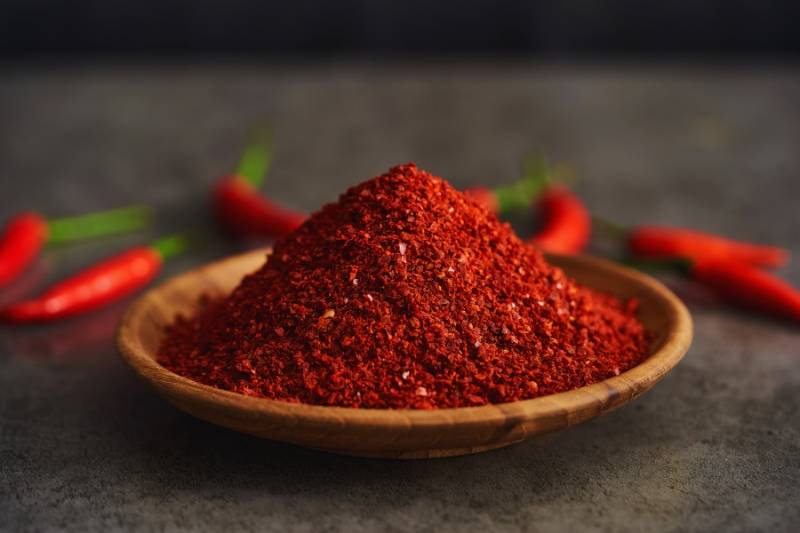
The strong smell of cayenne or black pepper is highly irritating to ants, making these spices great natural repellents. The scent confuses ants, disrupting their scent trails and keeping them from finding food sources in your home.
To use ground cayenne or black pepper, sprinkle a light layer near entry points such as doors, windows, and cracks where ants are entering. You can also create a barrier around areas where you’ve seen ants frequently, like along baseboards or under kitchen appliances. Reapply the pepper after cleaning or if it gets blown away to maintain its effectiveness.
Lemon Eucalyptus Oil
Lemon eucalyptus oil is a powerful natural oil that repels ants thanks to its high citronella content. The strong scent masks ant trails, making it hard for them to navigate. To use lemon eucalyptus oil, soak cotton balls with a few drops of the oil. Place these cotton balls in areas where ants are commonly seen.
Make sure to refresh the cotton balls every few days to maintain their effectiveness. The oil’s potent aroma deters ants while keeping your home smelling fresh. However, don’t ingest this oil and also keep it away from pets and children. This method is simple and uses a natural ingredient to help keep ants away. You can find this oil in local health food stores.
White Vinegar
White vinegar is a simple yet effective solution to keep ants at bay. Its strong scent masks the pheromone trails that ants use to find their way back to food sources, confusing them and deterring them from entering your home.
To make a vinegar spray, mix equal parts of white vinegar and water in a spray bottle. Shake well and apply the mixture to areas where ants are commonly found, like countertops, baseboards, and entry points. This method disrupts the ants’ navigation and helps prevent infestations.
Remember, the smell might be strong at first, but it fades quickly for humans while remaining effective against ants.
Neem Oil
Neem oil is a natural insecticide with properties that can disrupt ant feeding and reproduction. Its active compounds interfere with the hormones of ants, making it harder for them to feed and breed. To use neem oil, mix a few drops with water and a small amount of dish soap in a spray bottle.
Apply the mixture around entry points, such as doors and windows, and areas where ants are often seen. You can also spray it directly on plants where ants are present. Be sure to reapply after rain or watering to maintain its effectiveness. Neem oil offers a natural, non-toxic way to get rid of ants.
Citrus Peels

Citrus fruits, such as the peels from lemons, oranges, or grapefruits, contain D-limonene, a compound that ants find highly repellent. The strong scent and chemical properties of D-limonene disrupt ants’ ability to follow scent trails and navigate effectively.
To use citrus peels as a natural ant repellent, place fresh peels in areas where ants are frequently seen, such as near doorways, windowsills, and kitchen countertops. You can also rub the peels directly on surfaces to leave behind a residue that deters ants. Refresh the peels every few days to maintain their potency. This simple method helps keep ants away without resorting to harsh chemicals.
Boric Acid
Boric acid is an effective natural remedy that can kill ants by interfering with their digestive systems. According to a 2023 animal study, it acts as a poison that targets specific types of worker ants. To make a boric acid bait, dissolve half a teaspoon of boric acid and eight teaspoons of sugar in a cup of warm water. Soak cotton balls in this mixture and place them in areas where ants are commonly seen.
You can also mix boric acid with sweet substances like maple syrup and spread it on cardboard to attract ants. Always use gloves when handling boric acid, and keep it away from pets and children, as it is toxic.
Cornstarch
Cornstarch is a simple, non-toxic way to get rid of ants naturally. It works by smothering ants, making it an immediate solution for dealing with these pests. To use cornstarch, sprinkle it generously over a group of ants. Then, add water to the cornstarch-covered area. The water and cornstarch mixture will trap the ants, creating a thick paste that smothers them.
Alternatively, you can vacuum up the cornstarch and ants, making sure to dispose of the vacuum contents immediately outside your home. This method is effective for quickly eliminating ants, and it’s safe around pets and children.
Coffee Grounds
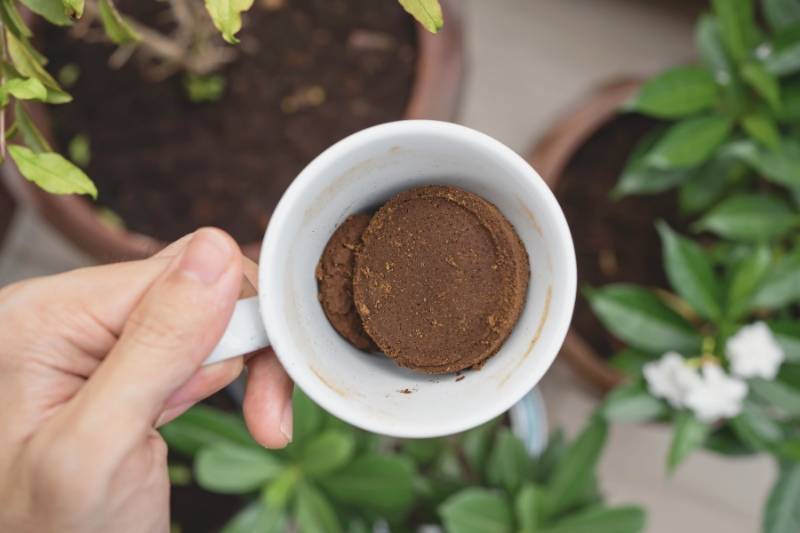
Used coffee grounds can help keep ants away because ants hate the strong smell. After making your coffee, take the leftover grounds and sprinkle them near entry points or where you often see ants. This smell confuses them and makes them avoid those spots.
Keep in mind, coffee grounds lose their strength once they dry out, so you’ll need to replace them often or use them with another method to keep ants away for good. This is an easy way to use something you already have to naturally get rid of ants.
Cinnamon Leaf Essential Oil
Cinnamon leaf essential oil can naturally repel ants and kill them. According to a 2008 study, this oil contains a compound called trans-cinnamaldehyde, which is very effective against ants. To use it, soak cotton balls in pure cinnamon leaf oil.
Place these cotton balls in spots where you usually see ants, like near doors, windows, or cracks. Replace the cotton balls with new ones every week to keep the scent fresh. Make sure to keep the oil and cotton balls away from pets, as it can be harmful. You can find cinnamon leaf essential oil in health stores or buy it online.
Lemon Juice
Lemon juice is a simple and effective way to deter ants. The acidic nature of lemon juice masks the ants’ scent trails, making it harder for them to find food. To use lemon juice, mix equal parts of lemon juice and water in a spray bottle. Spray this solution on areas where ants are commonly seen.
You can also use the mixture to wipe down surfaces, leaving behind an acidic barrier that ants avoid. The fresh scent is a bonus for your home while helping to keep ants at bay naturally. Just remember to reapply regularly to discourage ants.
Baby Powder

Baby powder can be surprisingly effective against ants. The fine talcum disrupts their scent, confusing them and making it harder for them to find food. I remember one summer when ants invaded my kitchen—I sprinkled a line of baby powder along the windowsill, and it was like putting up a “Do Not Enter” sign. The ants just stopped!
To use this method, sprinkle baby powder at entry points like doors and windows. If you spot a bunch of ants, dust some powder directly on them. The talc can clog their breathing holes, which helps get rid of them quickly. This simple trick keeps ants at bay without harsh chemicals.
Boiling Water
Boiling water is a quick way to kill ants in their nests. One summer, I had a stubborn ant hill in my garden. I tried pouring boiling water, and it worked like a charm! Just boil a pot of water and carefully pour it directly into the ant hill or any cracks where ants are nesting.
However, be cautious—boiling water can harm any plants it touches, so avoid pouring it near your garden plants. Always wear protective gloves and keep kids and pets away to prevent burns. This method is an effective way to get rid of ants fast, but remember to watch out for plants!
How to Keep Ants Away From Your Home
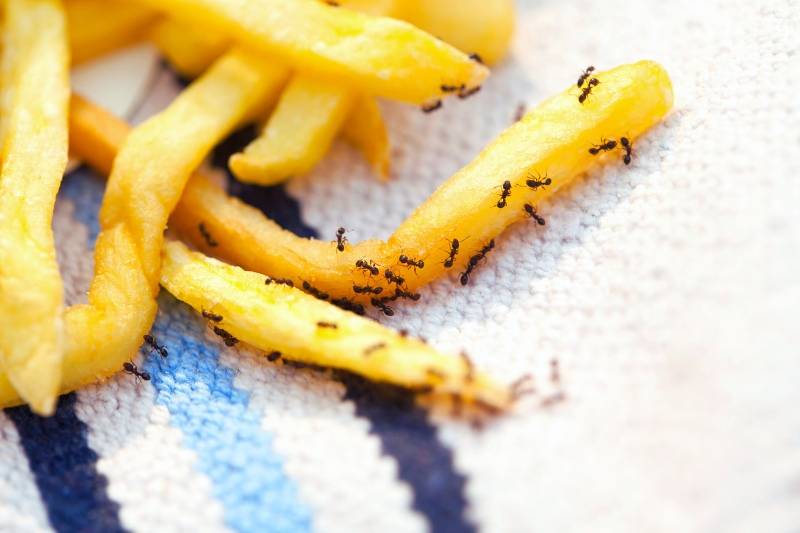
Preventing future infestations in your home is easier with a few simple steps:
- Seal cracks and entry points: Check around windows, doors, and walls for any small openings. Even tiny cracks can be entryways for ants. I once found a trail sneaking in through a crack under a window! A quick caulking job can stop them.
- Keep food sealed: Store food in airtight containers. Ants are drawn to even the faintest smell, especially sugary items. Make sure to keep your pantry and countertops clean.
- Maintain a clean environment: Wipe up spills right away, sweep up crumbs, and take out the trash regularly. Sealing garbage tightly helps keep ants from finding food sources. Regular cleaning is a simple but effective way to repel ants naturally.
Alternatives to Natural Home Remedies for Ants
When home remedies simply aren’t working anymore, it’s time to bring out the big guns! Here are some alternative ways you can deal with your ant infestation.
Bait Traps
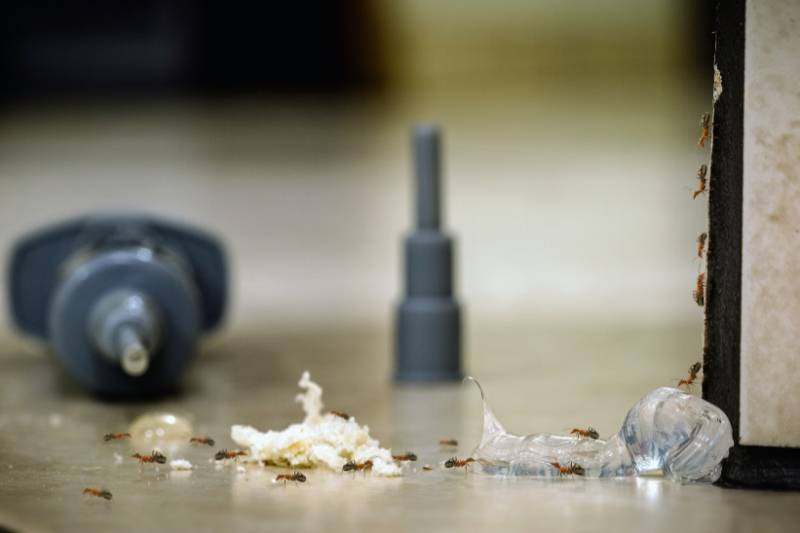
Bait traps are a clever way to deal with ants, especially those hiding in walls or underground. These traps work by attracting ants to a bait that contains a slow-acting poison. Ants eat the bait and carry it back to their colony, sharing it with others. This method is effective because it targets the whole colony, not just the ants you see.
Bait traps are great for reaching those hidden nests that are tough to access. They quietly work over time to reduce the ant population. Just place the traps in areas where you see ant activity, and let them do the job. It’s a smart, hands-off way to get rid of ants.
Commercial Repellents
Commercial repellents are another option to consider when trying to get rid of ants. These products can be sprays, gels, or powders designed to repel or kill ants on contact. Many commercial options are non-toxic and environmentally friendly, which is great if you want to avoid harsh chemicals.
For severe infestations, especially when natural remedies aren’t doing the trick, using a commercial repellent can be a good choice. They’re effective and often provide fast results. You can find repellents that work indoors and outdoors, making them versatile. Just read the labels carefully to ensure you’re choosing a product that’s safe for your home and pets.
Ant Extermination
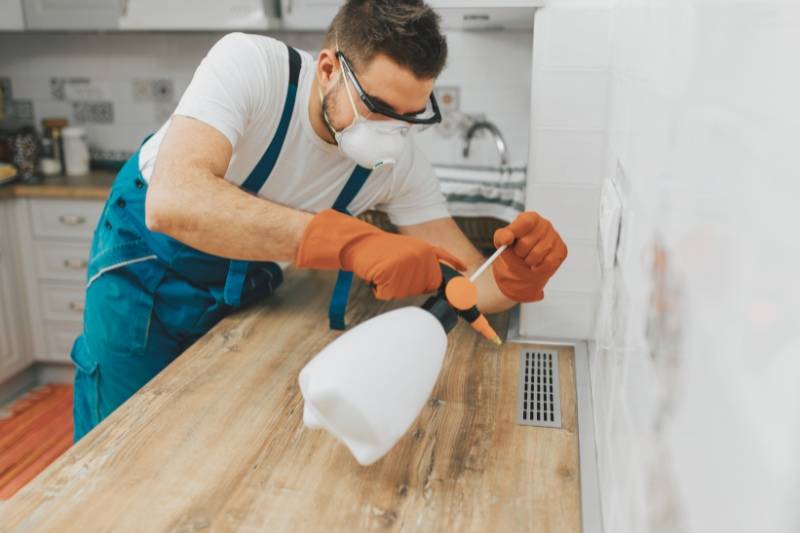
Sometimes, hiring a professional exterminator is the best option, especially for large or stubborn ant infestations that just won’t go away. If ants are deep in walls or underground, experts can help. When natural remedies and store-bought repellents aren’t effective, it might be time to call in an expert.
Look for someone who uses eco-friendly or low-toxicity methods. It’s important to protect your home environment and your family’s health. Ask about their experience with ants and the treatments they use. A good exterminator will offer solutions that target the root of the problem while being mindful of your family’s health and safety.
Key Takeaway
Ant infestations are annoying sometimes, and getting rid of them can be quite challenging. However, it’s possible to actually get rid of them using the methods explained above. If you don’t want to do the extra work, go for commercial solutions. But make sure to use eco-friendly products. We don’t want to forget about the environment now, do we?
For the best result, combine targeted remedies with preventive methods. Keeping your house clean will keep the ants at bay for sure.
Frequently Asked Questions (FAQ)
The best home remedy for ants often depends on the severity of the infestation and the specific type of ant. Common remedies include using vinegar, lemon juice, or essential oils like peppermint or tea tree oil. These substances mask ant trails and repel them from entering your home.
To get rid of ants permanently, combine prevention with treatment. Seal entry points, keep food sealed, and maintain cleanliness. Use ant baits or traps to target the colony. For severe infestations, consider professional pest control.
To get rid of ants overnight, use quick solutions like placing ant bait traps or applying a strong deterrent such as vinegar or lemon juice around entry points. Keep in mind that while these methods can reduce the number of ants quickly, long-term solutions are needed for permanent results.
Ants dislike strong smells such as vinegar, citrus (lemon and orange), peppermint, and cinnamon. These odors can disrupt their scent trails and act as natural repellents.
Most ants are not dangerous, but some species can bite or sting, causing allergic reactions or discomfort. Carpenter ants can damage wood structures, and fire ants are known for painful stings. It’s important to address infestations to avoid potential risks.
To get rid of ant eggs, use ant baits or traps that are designed to attract ants and carry the bait back to the nest. The bait will kill the ants and destroy the eggs. Regular cleaning and sealing entry points will also help prevent further egg-laying.

